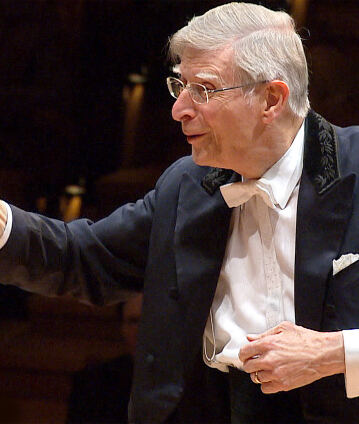Interview
Herbert Blomstedt à propos de la « Missa solemnis » de Beethoven Herbert Blomstedt dirige la « Missa solemnis » de Beethoven

Beethoven lui-même appelait la Missa solemnis sa « plus grande œuvre ». Ce monument de la musique sacrée délaisse les contraintes du service religieux pour véhiculer directement la pensée et les sentiments du compositeur. Soutenus par le Chœur de la Radio bavaroise, les Berliner Philharmoniker interprètent ici la messe sous la direction d’Herbert Blomstedt.
Berliner Philharmoniker
Herbert Blomstedt
© 2012 Berlin Phil Media GmbH
Interviews liées au concert